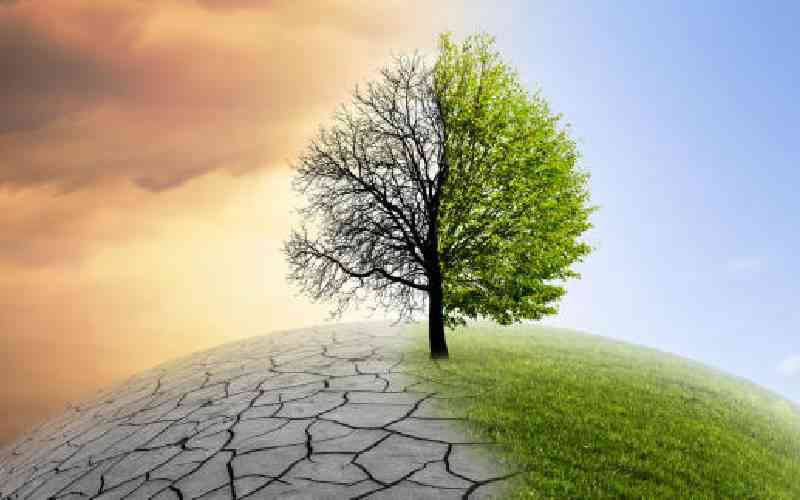
A few years ago, a mention of mental health brought to mind individuals in market places, dressed in torn dirty clothes, their backgrounds only becoming important when they died and needed to be buried.
Several milder cases were hidden, sometimes provoking rights activists to point out abuse. Several other cases are ignored.
Mental disorders may be attributed to anything from hereditary to trauma, or even curses and witchcraft, depending on medical tests and beliefs. But there is one cause that is easy to overlook, yet so alive for years now.
Last week, a video of a woman screaming at a supermarket was attributed to rising cost of goods. While that may not have been the case, many are those that cannot cope and are stressed, depressed, even irritable to their children.
Families in arid and semi-arid regions may have adapted to certain long dry spells, but the worst hit in Marsabit and such places say it is taking longer than they can endure. They are stressed.
Besides its economic and environmental impacts, researchers have found a relationship between climate change and mental health, especially among farmers. “The more severe the agricultural impact of drought the greater the impact on mental health,” according to “The Impact of Drought on Mental Health in Rural and Regional Australia” published in 2007.
But drought is not the only feature of climate change that can increase or trigger mental health problems. Neither are farmers the only ones likely to be affected.
Families that have been displaced from their homes because of floods experience disruptions not only of their sources of livelihood, but also socially.
A story in published in The Standard this week indicated the suffering of families in Budalang’i in Western Kenya following recurring floods between 2019 and 2021, after dykes collapsed. Their stories mirror those told in Nyando areas where people have lived in tents in camps since 2019. In both cases, some families have been forced to bury their kin in graves away from their submerged homes.
They do not enjoy the freedom of living in more secure and private compounds where they decide what is done therein.
It means squeezing in small tents after being at the mercy of humanitarian NGOs and government for shelter, bedding and food aid. It also means dealing with cases of teen pregnancies and denial of conjugal rights for lack of privacy in those tents that get too hot during the day and very cold at night. Some men and women who cannot contain their sexual urges have strayed, and the result is stress, families splitting and at worst, suicides or killings.
A lot of legislations were passed and budget allocations made towards climate adaptation by the President Uhuru Kenyatta government, including one this week.
Even as efforts are made by government to alleviate poverty and relieve affected families of effects of extreme weather events on their livelihood, security, education, development, name it, it must not be lost on the actors that there are invisible problems associated with climate change. Deliberate efforts must therefore be made to recognise effects of flooding and prolonged drought on people’s mental health. This will enable deployment of the right people to the right places post-disaster.
If this is a problem in the West, then it can be here too. Effects of climate change can make you run mad.
 The Standard Group Plc is a multi-media organization with investments in media
platforms spanning newspaper print
operations, television, radio broadcasting, digital and online services. The
Standard Group is recognized as a
leading multi-media house in Kenya with a key influence in matters of national and
international interest.
The Standard Group Plc is a multi-media organization with investments in media
platforms spanning newspaper print
operations, television, radio broadcasting, digital and online services. The
Standard Group is recognized as a
leading multi-media house in Kenya with a key influence in matters of national and
international interest.
